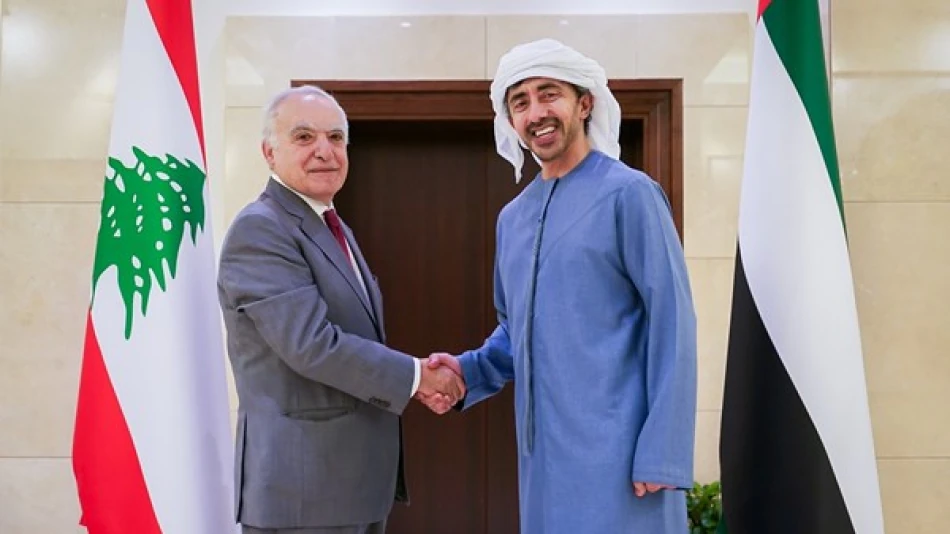
UAE Foreign Minister Welcomes Lebanese Culture Minister for High-Level Talks
UAE and Lebanon Strengthen Cultural Ties Amid Regional Turbulence
The UAE's Foreign Minister Sheikh Abdullah bin Zayed Al Nahyan met with Lebanon's Culture Minister Dr. Ghassan Salame in Abu Dhabi, signaling continued diplomatic engagement between the two nations despite Lebanon's ongoing political and economic crisis. The meeting focused on bilateral cooperation and cultural partnerships, highlighting the UAE's strategic approach to maintaining regional influence through soft power diplomacy.
Strategic Diplomatic Engagement
The high-level meeting in Abu Dhabi represents more than routine diplomatic protocol. As Lebanon continues to grapple with one of the world's worst economic collapses since the 1850s, the UAE's sustained engagement demonstrates its commitment to regional stability and its role as a key mediator in Middle Eastern affairs.
Sheikh Abdullah bin Zayed's expression of wishes for Lebanon's "continued stability and prosperity" comes at a critical juncture. Lebanon has been without a president since October 2022, and its government operates with limited capacity amid severe financial constraints and infrastructure challenges.
Cultural Diplomacy as Foreign Policy Tool
Beyond Traditional Partnerships
The emphasis on cultural cooperation reflects the UAE's sophisticated approach to regional diplomacy. Unlike traditional economic or security partnerships, cultural exchanges create lasting people-to-people connections that transcend political volatility. This strategy has proven effective in the UAE's relationships across the region, from its normalization with Israel to its engagement with Iran.
Lebanon's Cultural Capital
Lebanon's appointment of Dr. Ghassan Salame, a respected academic and former UN official, as Culture Minister signals the country's recognition of cultural diplomacy's importance. Salame's international credentials and experience in conflict resolution add weight to these bilateral discussions, potentially opening channels for broader cooperation.
Regional Context and Implications
This meeting occurs against a backdrop of shifting regional dynamics. The UAE has emerged as a stabilizing force in the Middle East, mediating conflicts and maintaining dialogue with various regional actors. Its approach to Lebanon mirrors successful engagement strategies employed with other nations facing internal challenges.
For Lebanon, maintaining strong ties with the UAE offers potential economic benefits and diplomatic support. The UAE has historically been a significant source of investment and remittances for Lebanon, with a substantial Lebanese diaspora community contributing to bilateral relations.
Looking Forward
The focus on mutual interests and cultural cooperation suggests both nations recognize the value of sustained engagement despite Lebanon's current instability. For the UAE, this represents continuity in its regional leadership role, while for Lebanon, it provides a diplomatic lifeline during challenging times.
The meeting's timing and emphasis on cultural partnerships indicate that both countries view their relationship as strategically important, transcending immediate political or economic challenges. This approach may serve as a model for regional diplomatic engagement in an increasingly complex Middle Eastern landscape.
Most Viewed News

 Layla Al Mansoori
Layla Al Mansoori






